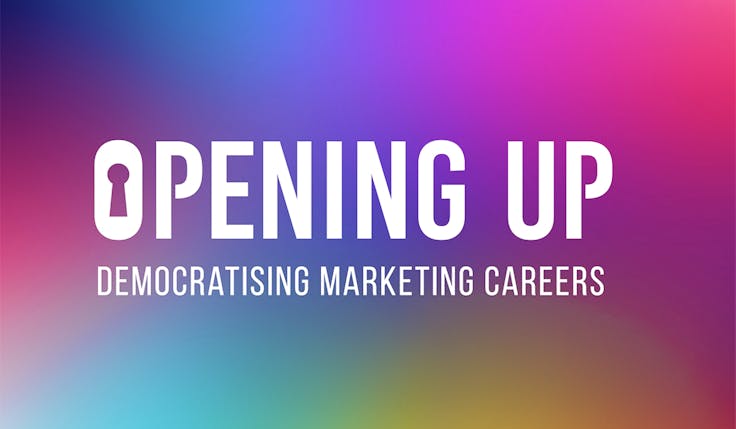Brands urged to tackle ‘name bias’ harming ethnically diverse talent
A new campaign is calling on employers to address the hiring biases stunting job prospects and fuelling pay inequality for ethnically diverse talent.
Workplace equality champion People Like Us is calling for urgent systemic reform to tackle the biased hiring practices impacting the earning potential of ethnic minority talent.
Released today (8 January) to coincide with Ethnicity Pay Gap Day, the ‘#NameTheBias’ campaign aims to spark national conversation about inequalities in pay and job prospects, pushing for a timeline for the introduction of mandatory ethnicity pay gap reporting.
The multimedia campaign, created in collaboration with creative studio Worth Your While, centres on a two-minute, black and white film showing a group of ethnic minority workers waiting at a bus stop.
The film is voiced by British Bangladeshi lyricist Yasmin Ali, who in a spoken word piece describes the ripple effects having the ‘wrong’ name can have on employment prospects and career progression. When the bus finally arrives the white commuters board first, the doors closing in the faces of their ethnic minority peers – a visual metaphor of the persistent inequality.
This campaign exposes how name bias quietly contributes to unequal pay and career stagnation for millions of workers.
Sheeraz Gulsher, People Like Us
The #NameTheBias campaign draws on 2019 research from the University of Oxford, which found candidates with ethnic minority names typically submit 60% more job applications to secure a callback compared to white British applicants.
The film is being screened at both the House of Lords and Houses of Parliament today, alongside a live poetry performance by Ali. People Like Us is hoping to build on the inclusion of ethnicity pay gap reporting in a draft bill in the King’s Speech in July 2024.
The brand film will run online, across social platforms and key digital media placements, backed by social influencer activation within the spoken word community and the People Like Us network.
Additional elements include billboards across London highlighting the impact of racial name bias in hiring, taking inspiration from design elements of a job application form and featuring hand-written excerpts of the poem from Ali’s notebook. People Like Us is also providing expert guidance for individuals on handling salary conversations and for businesses on how to create equitable workplace practices.
“This campaign exposes how name bias quietly contributes to unequal pay and career stagnation for millions of workers,” says People Like Us co-founder Sheeraz Gulsher.
“By sparking awareness and offering practical tools, we aim to empower individuals and push businesses and policymakers toward meaningful change.”
Overlooked, undervalued
The #NameTheBias campaign is backed by the release of new research, in partnership with Censuswide, which reveals the stark reality for ethnically diverse talent of rescinded promotions, stalling pay and pressure to work out of hours.
According to the survey of more than 2,000 working professionals, over 70% of ethnic minority workers worry there would be negative consequences from discussing their pay, compared to 51% of white workers. Concerns for ethnic minority groups include being seen as disruptive (30%), facing career limitations (28%), or losing their job (23%).
Only around a fifth (21%) of those surveyed say their employer publishes salary bands for roles to illustrate the lower and upper limit
Over half (57%) of those surveyed would support the UK adopting the EU Pay Transparency Directive, requiring companies to share information on salaries before interviews and banning employers from asking about a candidate’s salary history

The research from People Like Us paints a picture of talent being overlooked for promotion and overworked by employers.
According to the survey, ethnic minority workers are almost twice as likely to have a pay rise or promotion rescinded due to the current economic climate (40% compared to 23% of white workers).
Almost a third of ethnic minority employees (32%) are working eight-plus hours above their contracted hours weekly, compounding pay inequities. Additionally, non-white employees work an average of 6.95 extra unpaid hours each week, compared to 6.27 hours for white employees.
Over a quarter (26%) of non-white employees work on weekends to catch up or get a head start on the following week, compared to 16% of white employees. The research also finds 23% of ethnically diverse employees have had time off for stress, compared to 16% of white employees.
Failing to address the ethnicity pay gap could have significant consequences for brands in terms of attracting and retaining staff, as well as building customer trust.
‘It pays to be privileged’: Brands still failing talent from working class backgrounds
According to the research, working in a business with a high ethnicity pay gap would lead a third (33%) of ethnically diverse talent to worry about their career progression and consider looking for roles elsewhere, compared to 16% of white employees.
The majority (66%) of ethnic minority professionals surveyed would either discount roles with companies with high ethnicity pay gaps or would only consider them if there were other compelling reasons. Indeed, the research finds more than a quarter (26%) of potential employees would not be willing to work for a company with a high ethnicity pay gap, regardless of ethnicity.
From a consumer perspective, 40.5% of ethnically diverse working professionals expressed reluctance in buying from companies with large ethnicity pay gaps.
Data from Marketing Week’s 2024 Career & Salary Survey exposed the persistent issue of pay inequality within the marketing industry. According to our data, marketers from ethnically diverse backgrounds are paid, on average, 8.5% less than their white counterparts. Marketing Week will update its 2025 ethnicity pay gap statistics in the coming weeks.
 Marketing Week’s Opening Up campaign is pushing for the democratisation of marketing careers. Read all the articles from the series so far here.
Marketing Week’s Opening Up campaign is pushing for the democratisation of marketing careers. Read all the articles from the series so far here.







